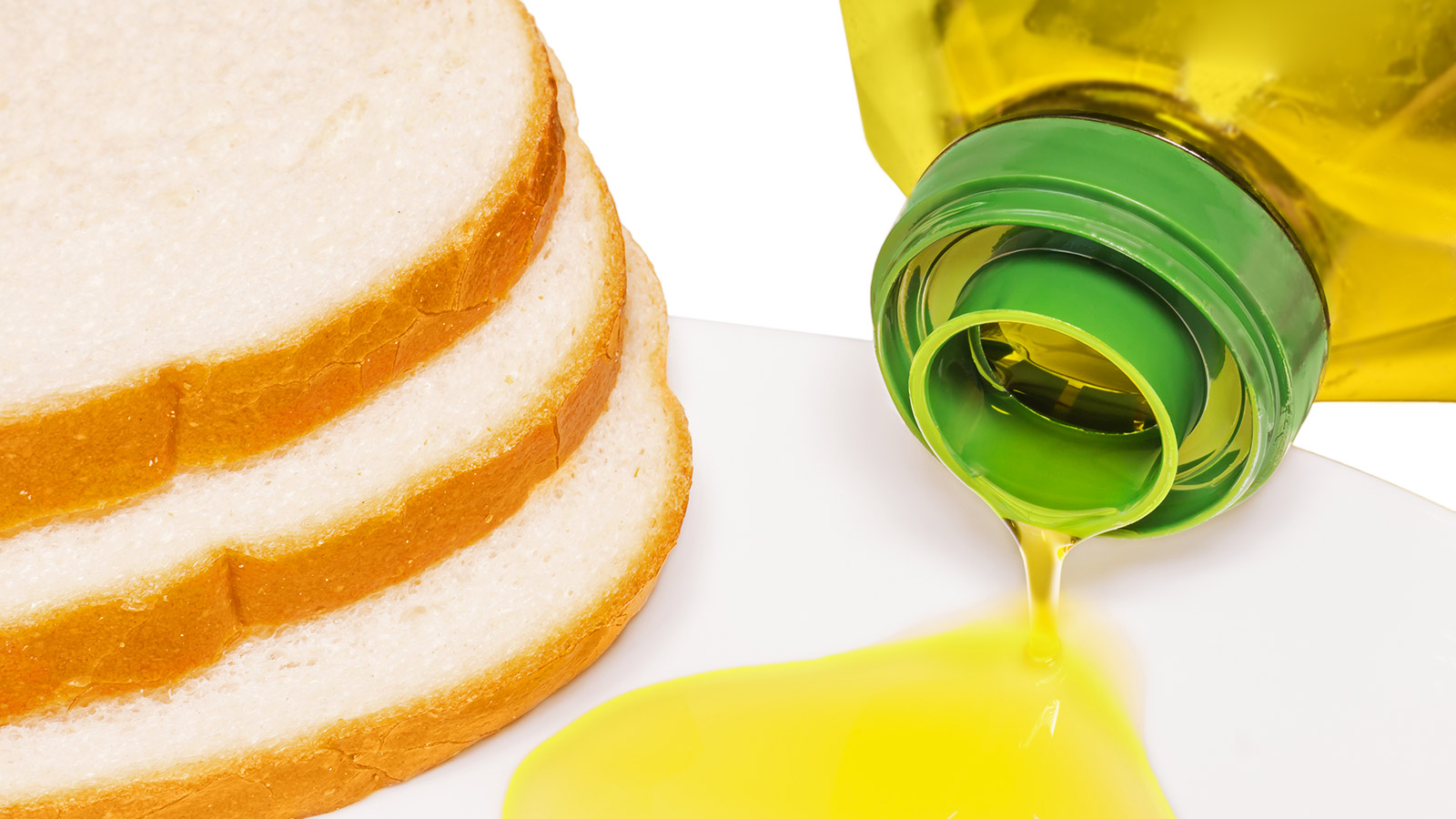Send your question to Umbra!
Q. I follow a largely vegan diet, but I often make exceptions for animal foods that have a lighter environmental impact, such as using local honey instead of sugar. I am wondering about butter and its alternatives. Coconut oil is a great butter replacement, but it must travel far. I have access to generic organic butter, but no local butter. What do you recommend?
Christine
Little Rock, AR
A. Dearest Christine,
Butter and its assorted alternatives aren’t technically required for a healthy diet, so we can live without them entirely. All butter does is moisten our cakes, add creamy flavor to our crackers, impart rich mouthfeel to our sautés, and lend an irresistible flakiness to our pie crusts … You know what? On second thought, we definitely can’t live without them. Please excuse me while I go grab a biscuit.
Since you’re open to cow-sourced products, I should start by pointing out that you do have access to local butter — if you can connect with a local, grass-fed, pastured dairy and make it yourself, that is. From what I remember from elementary-school Pioneer Day, this is a tasty and fun process.
But then again, it’s also somewhat time-consuming and creates a product high in saturated fat, one of the artery-clogging bad fats we’d all do well to avoid. And because you’re largely limiting animal products in your diet, Christine, I suspect you’d be even more interested in some of the creative, plant-based alternatives out there. Coconut oil is a popular one, but as you note, it’s not exactly a local product. Let’s toss out palm oil too while we’re at it — the stuff is linked to significant ecological destruction of the rainforest.
Then we have the commercial butter-alternative spreads and sticks, many of which blend palm oil with soy and olive oil, among other ingredients. These might be an option for you, but they’ve got their issues, too; head over here for more on that.
For now, let’s move on to a few more novel ideas. And because you sound keen on local foods — good for you, by the way — I’ll focus on alternatives that don’t need to cross continents to get on your pancakes.
The proper butter substitute depends on what you’re doing with it: Baking, cooking, and spreading on toast all demand different qualities and tastes. Let’s start with baking. I know from experience that applesauce can often stand in for fats in cakes and sweet, dense breads without causing too much disruption. I’m also reading that mashed avocado works in cookies and muffins (you might need to add a little liquid or oil to get the batter consistency right). One more idea: prune puree, said to work well with chocolate- and cinnamon-based recipes. You might need to do a little experimenting to hit on the best alternatives in any given recipe, but you can always send the extra batches to your favorite advice columnist.
On the cooking front, veggie-sourced oils are the clear winners. There seem to be dozens of different varieties greasing the supermarket shelves these days, from garden-variety olive and canola to more exotic oils squeezed from peanuts, sunflower seeds, walnuts, grapeseeds, and fermented bananas (OK, I made that last one up).
Heart-healthy, easy to find, and relatively affordable, olive oil is a good and useful choice. Go for organic and local or regional oils if you can — that’s right, domestic olive oils are out there and reportedly quite delicious (here’s one from Georgia and another from Texas). Canola oil is another popular kitchen multitasker; most brands are sourced from GMO seeds, though, so reach for the organic varieties if that’s an issue for you. Sunflower, safflower, and peanut oils also come highly recommended for cooking, though it’s worth experimenting with some of the fancier oils, too, if you can find a good source. Keep in mind all these oils have varying nutritional profiles and smoke points, meaning some can handle the heat of sautéing or stir-frying better than others (go here and here for help untangling which works where).
And if you’re just looking for something satisfying to spread (or drizzle) on dinner rolls? The more delicate oils mentioned above — like avocado, almond, or walnut — shine here. Some of these specialty brands are organic and/or sourced from domestic nuts (usually California). I also found a tip that putting high-quality olive oil in the fridge will thicken it to a spreadable consistency. Want a few more ideas? How about thick, creamy spreads made from carrots, squash, or slow-cooked onions?
I could probably go on, but I think we’ve got a good start here, Christine. Besides, all this chat is making me hungry.
Oleically,
Umbra




